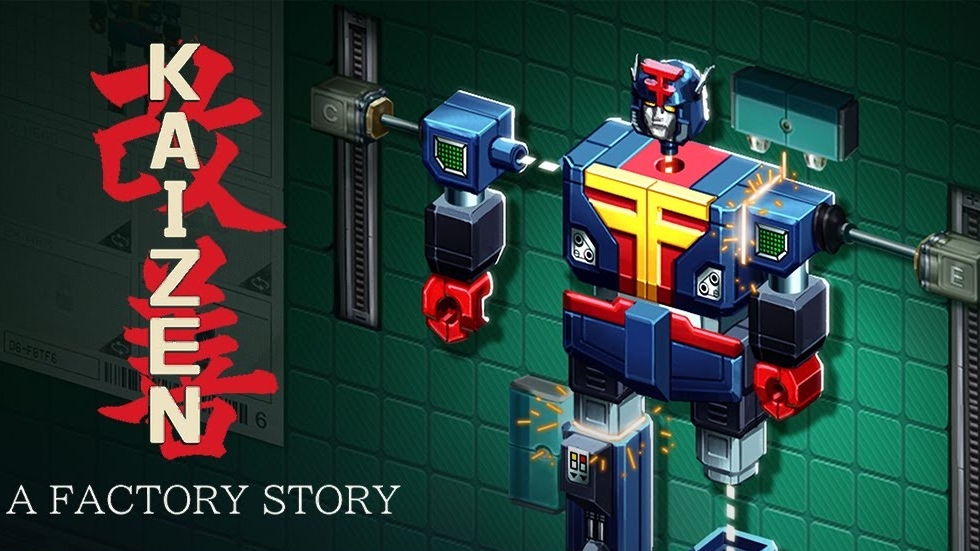Zachtronics Returns with "Kaizen: A Factory Story"
Zach Barth, the driving force behind the acclaimed game studio Zachtronics, is known for his unique blend of puzzle design and technological exploration. With a legacy that includes influential titles like Infiniminer, which laid the groundwork for the Minecraft phenomenon, Barth’s latest project, Kaizen: A Factory Story, promises to expand upon his established creative formula. This new game invites players into the fast-paced world of manufacturing during Japan’s booming economy of the 1980s.
A Brief History of Zachtronics
Zachtronics is well-regarded for its thought-provoking puzzle games that often incorporate elements of computer science and engineering. Titles like SpaceChem, TIS-100, and Opus Magnum exemplify Barth’s knack for turning complex ideas into engaging gameplay. These games typically challenge players to optimize processes, manage logistics, and solve intricate puzzles under constraints. Fans affectionately term this style of game design as "Zach-Like", a label Barth himself has expressed discomfort with, emphasizing that he prefers innovation over categorization.
While the studio is famous for its puzzle mechanics, Barth has also ventured into other genres, such as the narrative-driven Eliza and the competitive Nerts!. This versatility indicates not only his broad range of interests as a developer but also the capacity of his team to create engaging experiences across different formats.
Introducing Kaizen: A Factory Story
Kaizen: A Factory Story marks a return to familiar territory for Barth and his reformed team at Coincidence, composed of former Zachtronics collaborators. The game allows players to simulate the role of an American factory manager in Japan during its significant economic growth. Players will be tasked with the optimization of production lines to manufacture various items, including toys and consumer electronics like Walkman devices.
Gameplay revolves around strategic arrangement and operation of factory machinery to achieve maximum efficiency in production. Players will need to consider factors such as time, power consumption, and costs while coordinating the actions of robotic arms to complete assembly tasks.
Gameplay Mechanics and Expectations
The central theme of Kaizen draws upon the concept of continuous improvement, which is at the heart of many Japanese manufacturing philosophies, particularly during the economic boom. As players navigate the challenges of running a factory, they will be encouraged to find innovative solutions to streamline production processes. The gameplay not only emphasizes puzzle-solving but also presents a satirical take on the sometimes relentless pursuit of efficiency in corporate environments.
The announcement trailer hints at beautiful graphics and immersive mechanics, setting high expectations for both fans of previous Zachtronics titles and newcomers alike. The combination of engaging design and historical context could make Kaizen a standout addition to the genres of simulation and strategy games.
Controversies and Industry Response
While Barth’s games have historically received positive acclaim, the video game industry is not without its controversies. The themes of labor, capitalism, and efficiency in Kaizen may resonate differently among players, potentially sparking discussions about the ethics of automation and consumerism. These subjects are particularly relevant in today’s climate, where technology continues to shape industries and affect labor markets.
As expectations build around Kaizen, it will be important to monitor how these complex themes are portrayed within the game and how audiences receive them. Barth’s previous explorations of capitalism’s darker aspects in his games invite curiosity about how Kaizen will navigate similar territory.
Conclusion
Kaizen: A Factory Story promises to bring back the engaging puzzle mechanics that have defined Zachtronics’ legacy while exploring new themes relevant to the modern world. As the game prepares for its release, anticipation is building within the gaming community. Zach Barth’s return to the puzzle genre offers not only an engaging experience but also a lens through which to examine the ongoing dialogue around efficiency, automation, and the complexities of consumer culture. This new title could very well reinforce Barth’s position as a visionary in game design and provide a unique commentary on the implications of technological advancement in manufacturing.









